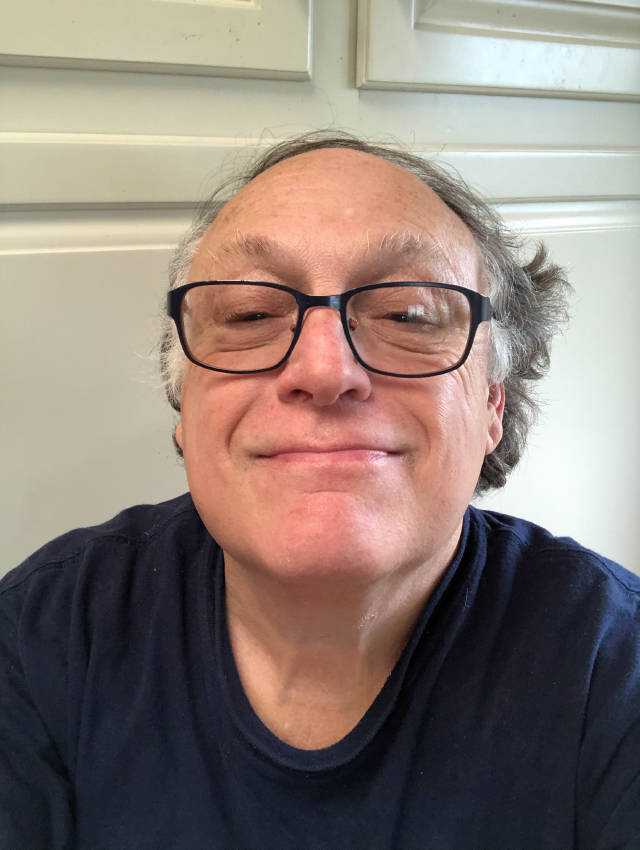After seeing many island children grow up before his very eyes, long-time pediatrician, Mark Fishaut, is trading in his stethoscope for garden shears as he enters retirement at the end of this month.
“I think the most important thing I have brought to child care on the Island over the years is what is known as the concept of ‘the medical home.’ This is my discipline’s vision of wrap-around child and family-centered care that is built on collaboration with other professionals, communication, and continuity of care,” Fishaut said. “Working together with others over the years, we have systematically helped boost immunization rates from unacceptably low levels to now being in line with State and national guidelines, reduced sports injuries, and contributed to improved mental health care for both young children and adolescents.”
Originally from British Columbia, Fishaut attended college in Massachusetts; went to medical school; trained as a pediatrician in Connecticut; did fellowship training in Colorado; then finally went to Buffalo New York to be on the university faculty. Eventually, with hopes of moving back west, he and his wife ended up on San Juan Island. He then connected with San Juan Healthcare in May of 2004, leading to his 17-year island career.
Working for San Juan Healthcare and Eventide Health was a much different experience than any other practice that he worked at in terms of community-centeredness, Fishaut explained. Back on the East Coast, he said he felt the need to choose between quality or quantity, as the fast-paced environment makes it harder to get to know a patient well, while medicine has gotten less personal and more industrialized.
The big change was that in New York, he did not live in the community in which he worked.
“In that sense, working on the island has been much more personal,” he said. “But that has been one of the keys to the pleasure in having worked here for so long. I’ve taken a bunch of kids as my patients from newborn all the way through high school.”
Apart from being a pediatrician, Fishaut was the girls’ soccer coach for Friday Harbor High School from 2006 to 2011.
“I was coaching a lot of girls who also grew up with me as their pediatrician, so I really had to make sure to separate those two worlds,” he said.
However, Fishaut enjoyed getting to know these kids in a different sort of way.
“Seeing people grow up is a terrific thing,” Fishaut said, adding that some of the most rewarding experiences were getting to help kids who were battling difficult situations.
While he has enjoyed getting to know his patients on the island, there are also some difficulties that stem from being an isolated community.
“Rural medicine, in general, is really different. Access to resources is much more limited. Populations are smaller and more intimate,” he said, adding that the ferries have also made things more difficult.
One of the most difficult aspects, Fishaut explained, is, “When tragedies occur especially in small, tight, communities like this, the pain is all the worse.”
These things made his time as a pediatrician on the island sometimes turbulent, but it was all worthwhile with the sense of community he felt, Fishaut said.
As he wraps up his practice, in his last year as a pediatrician Fishaut said has seen the pandemic cause destruction to the medical field. In some cases, entire practices have closed in rural America. The island already has a low population of children, as they are outnumbered by an older population, which makes it difficult to be a pediatrician. Since the pandemic, he said he has seen fewer people coming into his practice. This was one of the aspects leading to his decision to retire.
“The changing politics of medicine are for others to hash out. My days of that are done,” he said with a laugh.
With four children, nine grandchildren and one great-grandchild scattered throughout the Pacific Northwest — as well as two dogs and a cat — Fishaut said he hopes to be able to spend more time with his family and work in his garden. On top of that, he also plans to stay involved with the school district, particularly in special education, as he has grown attached to the community.
“Nothing beats someone saying thank you on the street for something you’ve done for their kid,” he said. “There’s no monetary reward that can replace that.”



